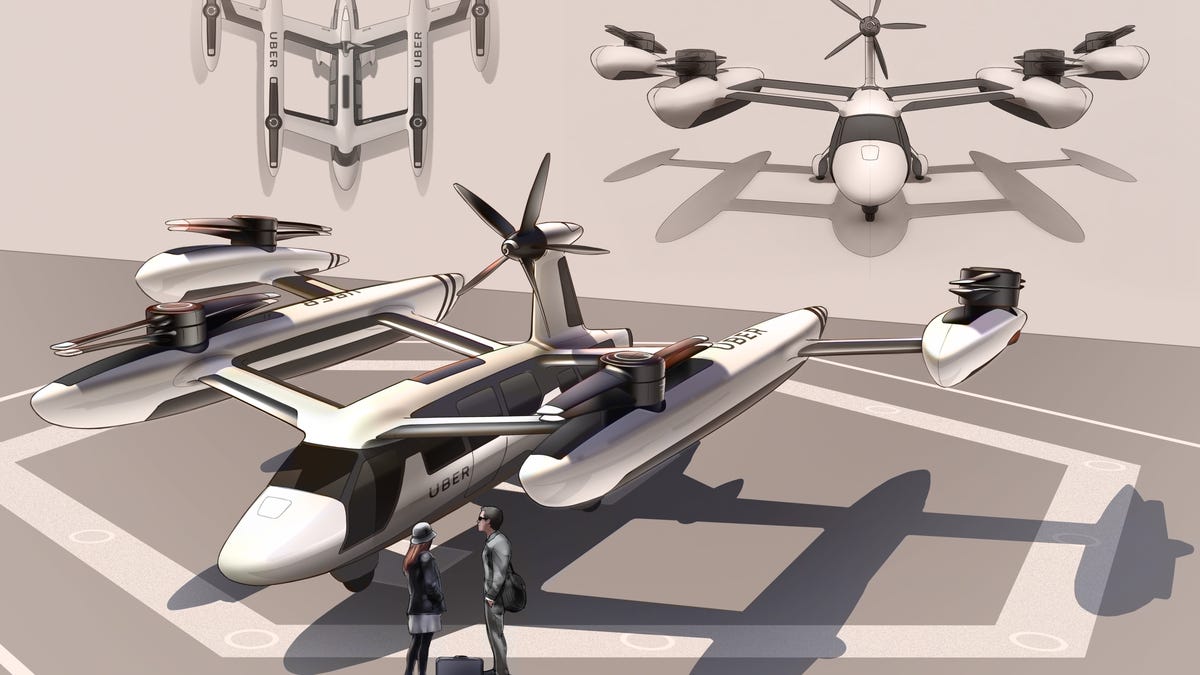Uber, US Army partner up for silent electric aircraft tech
They will work together to design, test and develop new co-rotating propeller technology for the vehicles.

On the heels of its unveiling of a flying taxi concept at the Uber Elevate Summit in Los Angeles this morning, Uber has announced that it has partnered with the US Army Research, Development and Engineering Command (RDECOM) Research Lab to develop and test electric vertical take-off and landing (eVTOL) vehicles.
The partnership will specifically focus on the use of co-rotating rotors for vertical thrust. Basically a pair of propellers stacked and spinning in the same direction, co-rotating rotors promise to be significantly quieter than traditional single rotors (like those on a helicopter) or paired rotors (like those on your quadcopter) with a benefit of also offering improved performance and efficiency.
Uber finds a quieter aircraft is desirable because its eVTOL designs and upcoming UberAir service are meant to be used in urban areas where noise pollution is a factor. Less noise pollution means more flexibility for the routes its flying taxis can take and where they can land. I shouldn't have to explain the benefits of improved efficiency for a flying electric vehicle; it's a huge factor in battery and recharge cycle management.
The Army hopes to further the development of next-generation silent VTOL craft and unmanned air vehicles. Stacked co-rotating rotors have never been used on an existing flying craft before and Uber along with the Army's research lab expect to split a combined $1 million in funding to research the technology.
By using two co-axial rotors spinning in the same direction, this new propeller tech promises to be quieter and more efficient.
Building on this rotor partnership, Uber also announced a partnership with electric propulsion company Launchpoint Technologies on modeling, design and fabrication of novel electric motors built specifically for the stacked co-rotating rotors of the eVTOL concepts. One such concept image displayed during the Elevate conference showed the e-motors integrated into the rotors' hubs, potentially saving weight and space.
We're on location at the Uber Elevate Summit 2018, so stay tuned over the next day or so for even more details regarding Uber's plans for urban air travel.

